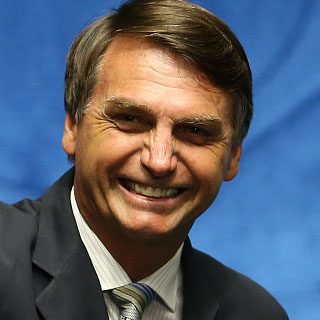BRASILIA, (Reuters) – Far-right presidential candidate Jair Bolsonaro said yesterday that China was an “exceptional partner” of Brazil, softening earlier criticism that Chinese investors were taking over Latin America’s largest economy.
“We will continue being a partner of China,” Bolsonaro said when asked how he would treat Chinese investments if he wins the October election.
“I don’t want any country buying up Brazil, but we will do business with all countries and China is an exceptional partner,” he told reporters.
China displaced the United States in 2009 as Brazil’s biggest trade partner, buying much of its soy and iron ore exports. Chinese investment has poured into Brazil’s energy and infrastructure sectors in recent years, and China has become a new source of financing in the Brazilian economy.
In an interview with Reuters last year, Bolsonaro said he wanted to restore the United States as Brazil’s top partner. He said he was worried that China was taking over the country with its investments in mining, agriculture, ports and airports, and vowed to restrict Chinese purchases of Brazilian companies.
Four months from the election, Bolsonaro has consolidated his lead with about 25 percent of voter intentions. Among his most fervent supporters are Brazil’s farm lobby, which depends on the Chinese market and which has led Bolsonaro to soften his view of China.
Chinese investment in Brazil hit a seven-year high in 2017, with $20.9 billion coming into the country.
Speaking before a panel at the Correio Braziliense newspaper, Bolsonaro said he would ease gun-control laws if elected, a prime demand of prosperous Brazilian farmers who want to arm themselves to deal with growing crime in rural areas.
Bolsonaro said he would reduce taxes and oppose an inheritance tax, but gave no details of how he planned to deal with Brazil’s gaping budget deficit if elected.
His closest rival in early polling, center-left populist Ciro Gomes, said taxing the wealthy and company profits and dividends was the only way to fix the fiscal deficit.
Gomes, who has 12 percent of voter support, said Brazil and Estonia were the only countries in the world that do not tax profits and dividends.
“Whoever wants to fix things in Brazil has to raise taxes on the rich and reduce taxes on the middle class and poor,” he told the panel.










